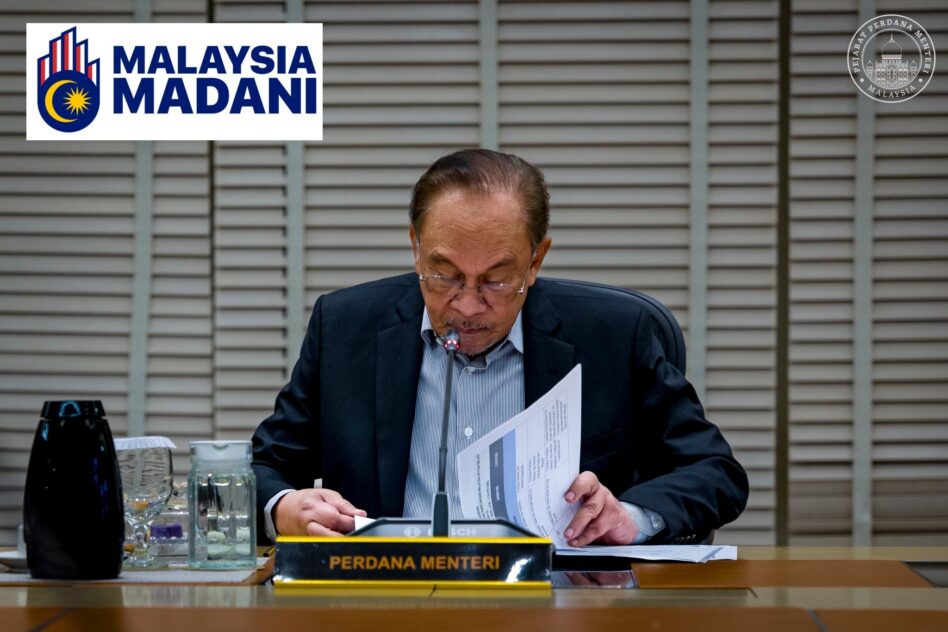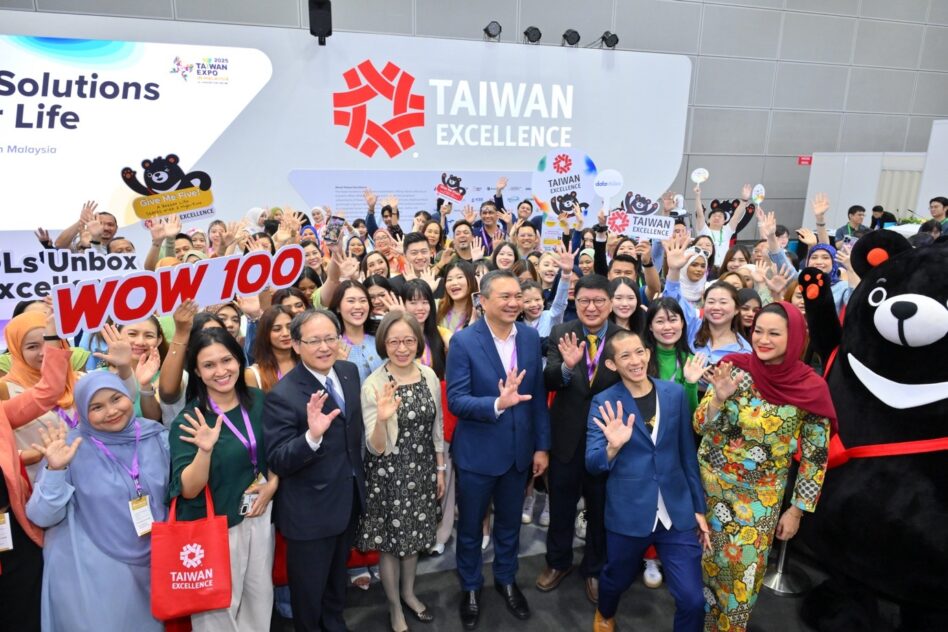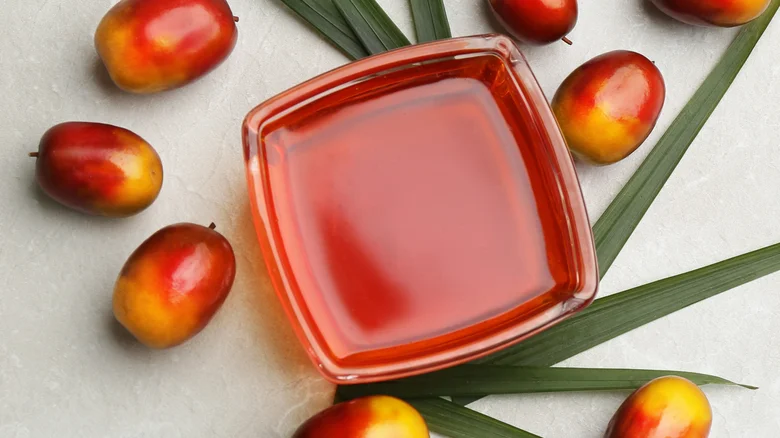THERE is a Malay proverb that states: “When two elephants go to war, the mousedeer gets trampled in the middle”.
That was very much the sentiment that economic and business-savvy digital creator Nazrihamdan (@nazribiztalk) was trying to gauge from the escalating tariff war between the world’s largest and second largest economies – namely, the US and China – would have om global economies.
Inevitably, it could be the smaller, more fragile ASEAN economies that will likely feel the effects of the tit-for-tat economic posturing between Washington D.C. and Beijing.
In a lengthy post, Nazrihamdan surmised that one immediate consequence of the tariff war was that China would need to find new markets for its electric vehicles (EVs).
On this note, he claimed that the latest round of tariffs would make Chinese EVs less marketable in the US given the higher selling price.
Malaysia bakal terima lambakan kereta murah dari China?
Lepas ni kita akan jangka kereta China susah nak masuk US sebab tarif tinggi . Permintaan di sana akan jadi slow, dengan kata lain tak laku sangat.
Oleh itu, China akan cari pasaran baru. Depa bakal mai sini dengan harga…
— Nazrihamdan (@nazribiztalk) April 12, 2025
As such, Chinese vehicle manufacturers would need to find new markets. This is where national car manufacturers – Proton and Perodua – start sweating buckets over fear of a price war.
On this note, the poster contended that Beijing provides plenty of incentives to its car manufacturers. These include soft loans, tax incentives and ease in buying batteries (a crucial component in EV industry).
Tough luck
He went on to claim that between 2016 and 2022, the Chinese government has lavished up US$57 bil on its EV industry while likening such treatment to a lovingly tendered Musang King durian tree that is nurtured with the finest fertilisers.
It is no wonder that China is able to produce EVs laden with features at ultra-low prices. When placed side-by-side, local offerings simply pale in comparison.
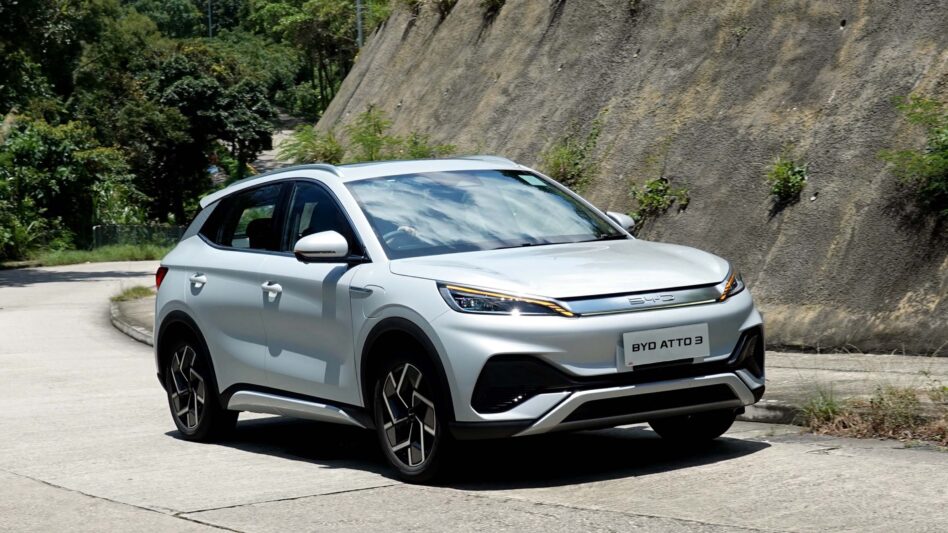
Drawing a comparison, Nazrihamdan noted that the basic Perodua Axia may cost in the region of RM45,000 while a Chinese EV fetches RM79,000.
While the former may cost less, it is the latter that will attract buyer attention as it is laden with gadgets and represents great value.
In this regard, the poster surmised that decisive action must be taken by the government to protect the local car industry as many players will be affected.
From workers at car plants to spare part manufacturers, the economy will be adversely affected if proper measures are not initiated.
He further argued that these must include incentives to purchasers to buy national marques as well as a sizeable budget for research and development.
Otherwise, local manufacturers such as PROTON will struggle to compete. As he half-jokingly put it, the Chinese equivalents “will provide karaoke in car entertainment while Proton struggles to locate the rear boot button”.
“If proactive measures are not taken, the national car industry will be akin to a warung (road-side stall) competing with Starbucks. It will get left behind,” he envisages.
Protectionism policy a bane
However, more than a few netizens disagreed, arguing that it is about time national car manufacturers learn to compete without expecting government hand-outs or protectionism.
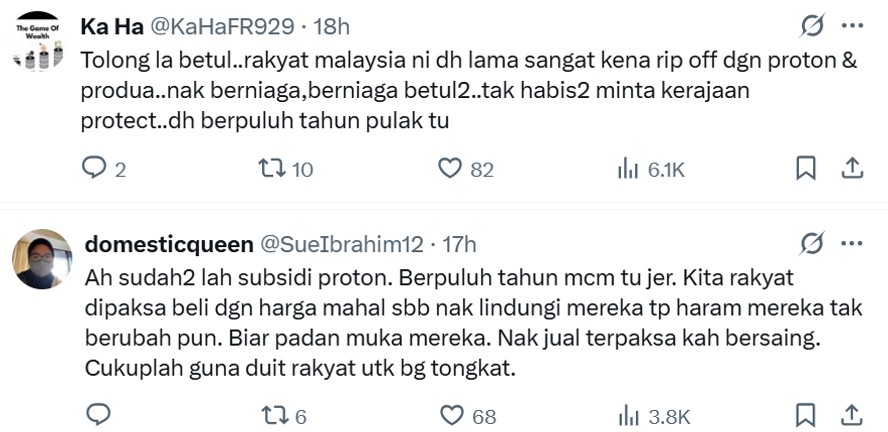
One commenter lamented at how that entire generation has had to shoulder the burden of failed local car manufacturers. It was this call for protectionism that led to Malaysians having to pay over-the-odds for sub-standard vehicles.

It was argued that the entry of Chinese EVs into the local market will force local manufacturers to climb out of its “comfort zone” with subpar quality offerings, ie “dropping window” infecting Proton X50 cars.

For now, however, the government has set a minimum price of RM100,000 for EV cars, “presumably as one way to protect the conventional petrol-powered cars .

It is indeed a tricky question and one that will require a fine balancing act. Does the government prioritise national car makers and the tens of thousands who depend on them for their rice bowl?
Or does it let market forces dictate the situation whereby it is the survival of the strongest and fittest? Only time will tell.
In the meantime, it will be interesting to see how all sides of the political divide respond to the unfolding saga between US and China.
Time for some concrete policies instead of constantly stirring the 3R (race, religion and royalty) pot. – April 14, 2025
Main image credit: ZIGWHEELS




